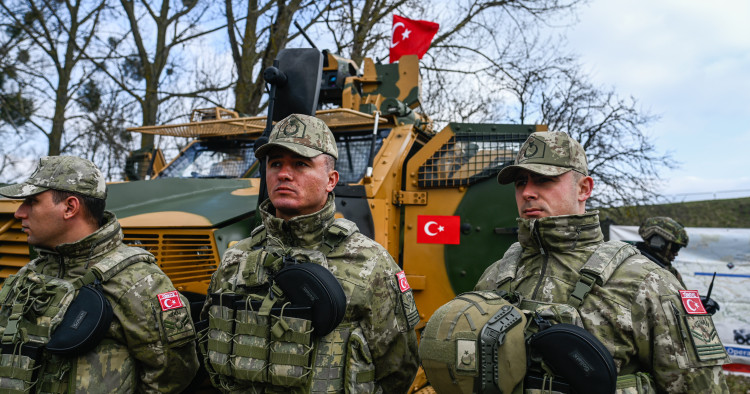Nato leaders will meet in Washington in July at a critical moment for European defence. Russia’s invasion of Ukraine confirmed that Europe cannot defend itself without America. That’s troubling, especially given that Donald Trump, whose commitment to European security is questionable at best, may return to the White House. Even if the next president is a Europhile, the Ukraine war and the US effort to pivot to the Indo-Pacific present Europe with its most dangerous juncture in decades.
To stand on its own feet on defence, Europe must start entertaining uncomfortable ideas. That includes incorporating Turkey into plans to scale up Europe’s military capabilities. For many European leaders, however, Turkey’s Recep Tayyip Erdoğan tops the list of unsavoury partners — and for good reason. His autocratic rule, unpredictability and tirades against the west often anger them. The Turkish strongman’s long foot-dragging on Swedish and Finnish Nato accession was only the latest headache for western leaders. Add Erdoğan’s cosy relations with Russia’s Vladimir Putin and Turkey’s troubled history with Greece and Cyprus to the mix, and it is clear why Ankara is not viewed as an indispensable ally but a spoiler of European security.
Read the full article in the Financial Times
Photo by Omar Marques/Anadolu via Getty Images
The Middle East Institute (MEI) is an independent, non-partisan, non-for-profit, educational organization. It does not engage in advocacy and its scholars’ opinions are their own. MEI welcomes financial donations, but retains sole editorial control over its work and its publications reflect only the authors’ views. For a listing of MEI donors, please click here.













